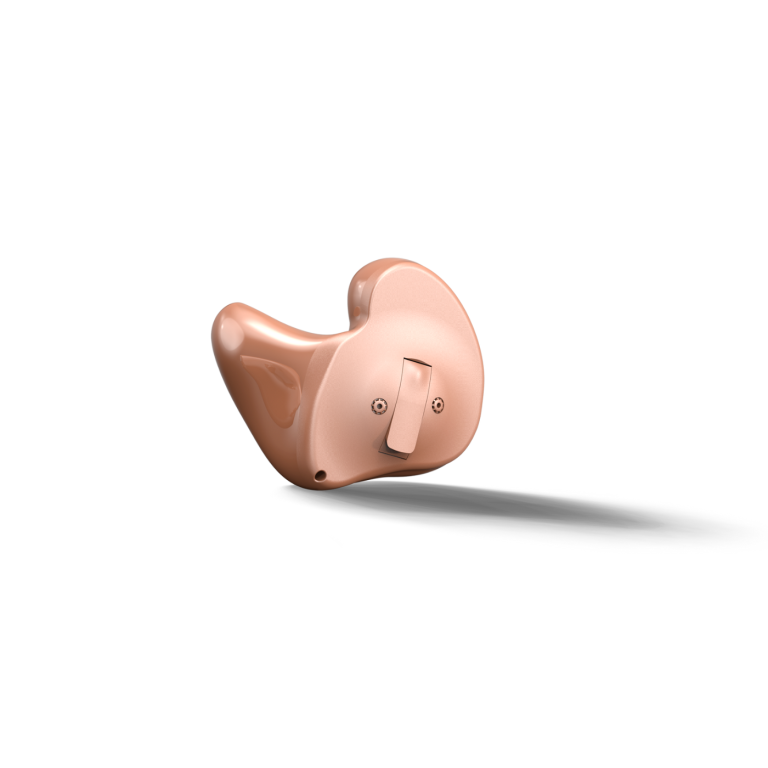
IN THE EAR HEARING AIDS
ITE hearing aids provide more powerful amplification than in-canal aids, while still using a relatively discreet custom-moulded shell.
RIC hearing aids consist of a small shell that sits behind your ear, which contains the microphones. It is connected to a small wire that goes over the top of your ear, which has a dome on the other end containing the receiver (speaker). The dome sits in your ear canal, hence “receiver in canal”.
Laura James, Audiologist at The Hearing Care Partnership, adds “Receiver in canal hearing aids provide a comfortable fit and are easy to use. RIC hearing aids offer a versatile combination of discretion, advanced technology and enhanced listening experience, making them a great choice for people with various types of hearing loss.”
Audiologist Laura James explains, “the small shell of a RIC hearing aid that sits behind your ear contains the microphones. These collect sounds and convert them into electrical signals. Those signals then travel down the thin wire that comes out over the top of your ear and go to the dome that sits in your ear canal. Unlike with BTE aids where everything is in the outer shell, with RIC aids the receiver (speaker) sits within the dome, closer to your eardrum to give the best possible sound quality.”
The cost of RIC hearing aids can vary hugely according to the level of technology that is inside, with prices for a pair of aids ranging from less than £2,000 to over £5,000 as part of our complete Hearing Care Packages.
Why not book an appointment with your local audiologist for more information on the costs of the specific technology you are interested in?
There are a few differences to consider when choosing between RIC hearing aids and CIC hearing aids. Completely In Canal hearing aids are designed to be as discreet as possible. They are custom-moulded to sit comfortably inside the ear canal, which means they are almost invisible from the outside. However, their small size means they are often restricted on the level of technology they can include, with very few offering Bluetooth or other additional features.
Receiver In Canal hearing aids offer more of a compromise between size and technology. They are relatively small in comparison to BTE aids, but are still more visible than CIC hearing aids because one part of them sits behind your ear. However, this means that the receiver and microphone are much further apart than a CIC aid, so they are less prone to sound interference. It also makes them very versatile, suitable for many levels of hearing loss, and allows them to incorporate a huge range of technologies to support your lifestyle.

If you think Receiver In Canal hearing aids might be a good choice for you, why not book a free hearing aid review at your local hearing centre? Alternatively, if you’re new to the world of hearing health, you can book a free hearing test?
Our expert audiologist will discuss your lifestyle needs and personal preferences, carry out a free assessment to check your current hearing levels and help you find your most suitable hearing aids. To book, call us on 0800 52 00 546 or click below to book online.

ITE hearing aids provide more powerful amplification than in-canal aids, while still using a relatively discreet custom-moulded shell.
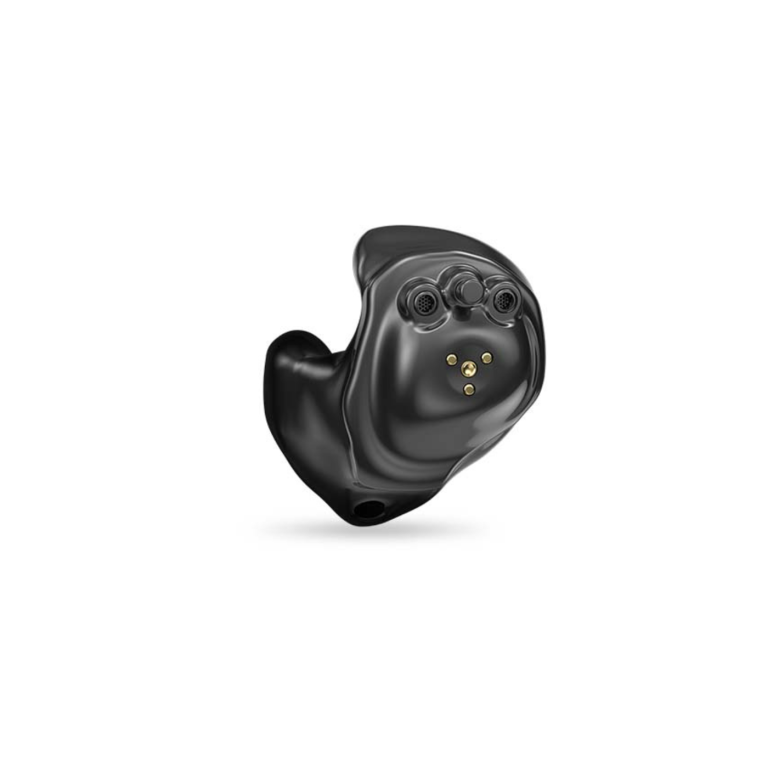
ITC hearing aids are custom-moulded to sit inside your ear canal, and are therefore smaller than ITE aids, but not as fiddly as CIC or IIC devices.
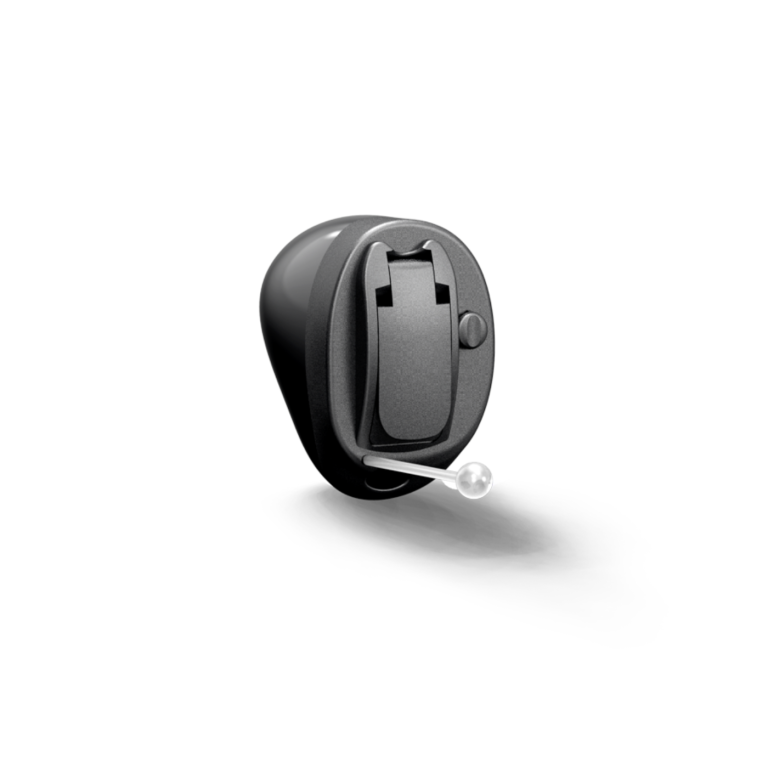
CIC hearing aids are small, custom-moulded devices that sit inside your ear, ideal for those with mild to moderate hearing loss.
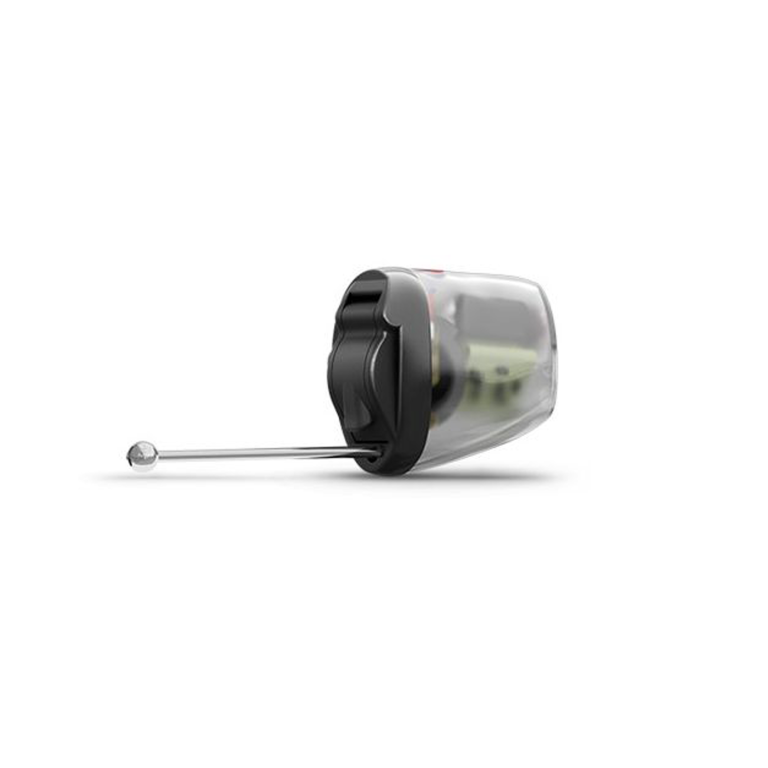
IIC hearing aids are the smallest devices available, packing incredible technology into a tiny shell that is virtually invisible when worn.
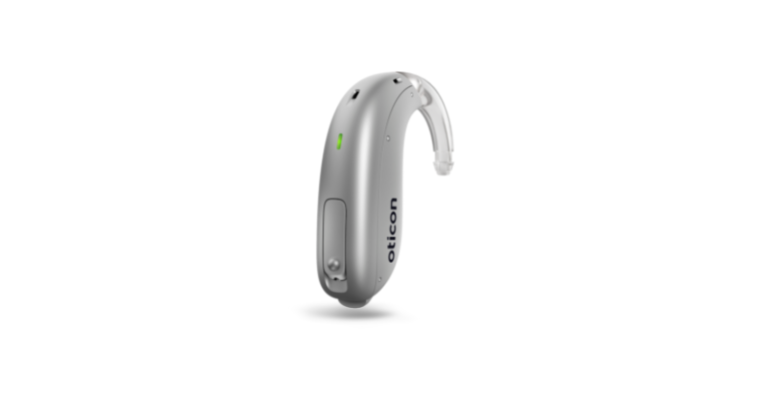
Suitable for a broad range of losses, BTE hearing aids are powerful, easy to handle and full of the latest technology.

Hearing Aids - Jul 2024
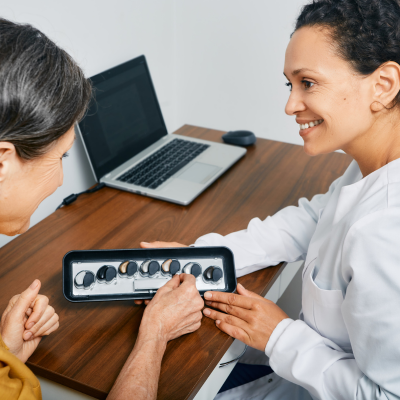
Hearing Aids - Jul 2024
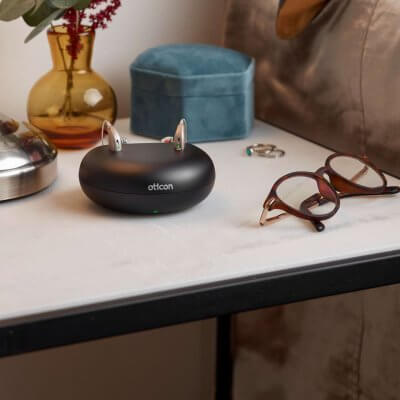
Hearing Aids - Feb 2021

Hearing Aids - Nov 2025